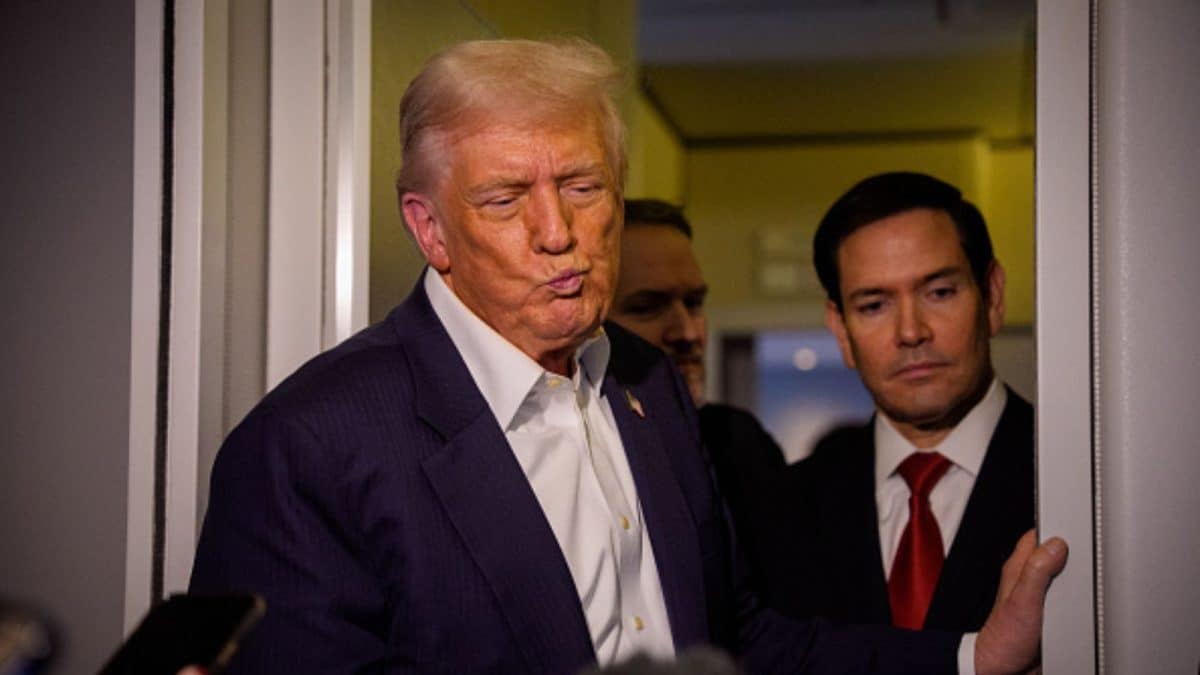ARTICLE AD BOX
India put the 1960 Indus Water Treaty between the two neighbours in abeyance in retaliation to the April 22 Pahalgam terrorist attack, which claimed the lives of 25 tourists.

Union Mansukh Mandaviya (left) and Pakistan President Asif Ali Zardari. (Photo: File/Reuters)
Union Minister Mansukh Mandaviya on Wednesday shredded Pakistan President Asif Ali Zardari over the latter’s remarks during the 2nd World Summit for Social Development in Doha (Qatar) that India was "weaponising water". Speaking at the Plenary Session, Mandaviya said India "takes strong objection" to the "unjustified references" made by Zardari, who had accused New Delhi of "using water as a weapon" and violating the Indus Waters Treaty of 1960.
"This is an abuse of an international forum to distract the world from focusing on social development by peddling disinformation against India," Mandaviya said, adding that India wished to "set the record straight".
Zardari, in his address a day earlier, had claimed that alleged violations of the Indus Waters Treaty by India posed a threat to "240 million Pakistanis," calling it a "direct threat to regional stability".
He vowed that Pakistan would "resist any move undermining its sovereignty or people’s livelihood".
Responding sharply, Mandaviya said that Pakistan had "undermined the spirit" of the 1960 treaty "through sustained hostility and cross-border terrorism".
India put the 1960 Indus Water Treaty between the two neighbours in abeyance in retaliation to the April 22 Pahalgam terrorist attack, which claimed the lives of 25 tourists.
Mandaviya also accused Islamabad of repeatedly misusing the treaty’s mechanisms "to obstruct India’s legitimate projects".
Reaffirming India’s adherence to the agreement, Mandaviya stated that all of India’s projects "fully comply with the provisions of the Indus Waters Treaty".
The accord, brokered by the World Bank in 1960, governs the sharing of the waters of the Indus River system between the two countries.
'DO NOT TALK ABOUT KASHMIR'
On Pakistan’s reference to Kashmir, the minister was categorical, saying, "As regards the Indian Union Territory of Jammu and Kashmir, Pakistan has no locus standi to comment on India’s internal affairs".
He further added that such statements were "particularly untenable when Pakistan itself indulges in acts of cross-border terrorism against the citizens of India".
Mandaviya also urged Pakistan to focus on its domestic challenges instead of using international platforms to attack India.
"Pakistan would do well to introspect and address its own serious challenges related to development, which have made it dependent on hand-outs by the international community," he said. "It should stop abusing international forums," he added.
India and Pakistan have long differed over the interpretation and implementation of the Indus Waters Treaty, which allocates control over the three western rivers — Indus, Jhelum, and Chenab — to Pakistan, and the three eastern rivers — Ravi, Beas, and Sutlej — to India.
Despite tensions, the treaty has largely survived several wars and diplomatic crises.
- Ends
Published On:
Nov 5, 2025

 1 hour ago
6
1 hour ago
6











 English (US) ·
English (US) ·